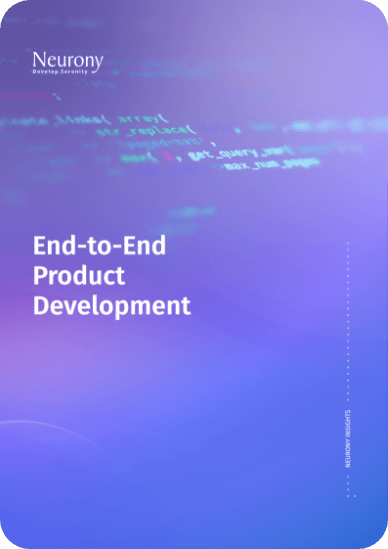We start working on your product the moment you tell us what it is about.
The breakpoint is a rather common element of software development. Breakpoints are places in the code where execution stops and the output of the preceding instructions can be collected and verified, allowing the developer to debug and fix issues after important chunks of processing are done.
Our product development process emulates this in its structure. The end of each stage is marked by a major decision point (sign-off), with minor decisions taking place during the implementation of the step.
Over the course of our 17 years of product development, we have settled on a set of procedures and work stages that ensure our clients are always up to date in regards to their project and able to make decisions on the fly. The following phases are not 100% sequential. Once we are out of the Discovery Phase, the steps can fall into repeating cycles, depending on the nature of the project, its complexity or the client’s approval process. For instance, some clients may choose to approve designs one screen at a time or in bulk. This, in turn, affects Front-end and parts of Back-end development.
Defining the Minimum Viable Product
We’re an entrepreneurial company and we take great pride in that. During our initial discussion with you, our goal is to probe for a set of Problems your product needs to solve and the Solutions you have envisioned for them. We then take on the delicate role of assumption challenger and help you decide what combination of features would get you market- ready the fastest. This decision is not set in stone, but it helps structure the discussions that take place in the next step.
As a rule of thumb, any and all decisions made at the end of a step have one goal: to lead to better
choices once the next step is over. We need this
granular approach for two reasons:
― As a Client, you are more inclined to be
interested in the Big Picture
― Our job is to build a product that closely
matches what you want and to stress about
the little things (so you don’t have to)
The former defocuses you from the little things,
but we know from experience that many
unimportant mistakes add up. In order to deliver
on our promises, we have to account for that.


 Download Insight
Download Insight 
